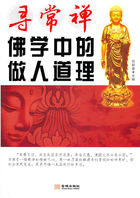For every Seaman of industry and ingenuity, is not only a Navigator, but a Merchant, and also a Soldier; not because he hath often occasion to fight, and handle Arms; but because he is familiarized with hardship and hazards, ex- tending to Life and Limbs; for Training and Drilling is a small part of Soldiery, in respect of this last mentioned Qualification; the one being quickly and presently learned, the other not without many years most painful experience: wherefore to have the occasion of abounding in Seamen, is a vast conveniency.
2. The Husbandman of England earns but about 4s. per Week, but the Seamen have as good as 12s. in Wages, Victuals (and as it were housing) with other accommodations, so as a Seaman is in effect three Husbandmen; wherefore there is little Ploughing, and Sowing of Corn in Ho/land and Zealand, or breeding of young Cattle: but their Land is improved by building Houses, Ships, Engines, Dikes, Wharfs, Gardens of pleasure, extraordinary Flowers and Fruits; for Dairy and feeding of Cattle, for Rape, Flax, Madder, &c.
The Foundations of several advantageous Manufactures.
3. Whereas the Employment of other Men is confined to their own Country, that of Seamen is free to the whole World; so as where Trade may (as they call it) be dead here or there, now and then, it is certain that some where or other in the World Trade is always quick enough, and Provisions are always plentiful, the benefit whereof, those who command the Shipping enjoy, and they only.
4. The great and ultimate effect of Trade is not Wealth at large, but particularly abundance of Silver, Gold, and Jewels, which are not perishable, nor so mutable as other Commodities, but are Wealth at all times, and all places:
Whereas abundance of Wine, Corn, Fowls, Flesh, &c. are Riches but hic & nunc , so as the raising of such Commodities, and the following of such Trade, which does store the Country with Gold, Silver, Jewels, &c. is profitable before others. But the Labour of Seamen, and Freight of Ships, is always of the nature of an Exported Commodity, the overplus whereof, above what is Imported, brings home mony, &c.
5. Those who have the command of the Sea Trade, may Work at easier Freight with more profit, than others at greater: for as Cloth must be cheaper made, when one Cards, another Spins, another Weaves, another Draws, an- other Dresses, another Presses and Packs; than when all the Operations above-mentioned, were clumsily performed by the same hand; so those who command the Trade of Shipping, can build long slight Ships for carrying Masts, Fir-Timber, Boards, Balks, &c. And short ones for Lead, Iron, Stones.
&c. One sort of Vessels to Trade at Ports where they need never lie a ground, others where they must jump upon the Sand twice every twelve hours; One sort of Vessels, and way of manning in time of Peace, and cheap gross Goods, another for War and precious Commodities; One sort of Vessels for the turbulent Sea, another for Inland Waters and Rivers; One sort of Vessels, and Rigging, where haste is requisite for the Maidenhead of a Market, another where 1/5 or 1/4 part of the time makes no matter. One sort of Masting and Rigging for long Voyages, another for Coasting.
One sort of Vessels for Fishing, another for Trade. One sort for War for this or that Country, another for Burthen only. Some for Oars, some for Poles, some for Sails, and some for draught by Men or Horses, some for the Northern Navigations amongst Ice, and some for the South against Worms, &c. And this I take to be the chief of several Reasons, why the Hollanders can go at less Freight than their Neighbours, viz, because they can afford a particular sort of Vessels for each particular Trade.
I have shewn how Situation hath given them Shipping, and how Shipping hath given them in effect all other Trade, and how Foreign Traffick must give them as much Manufacture as they can manage themselves, and as for the overplus, make the rest of the World but as Workmen to their Shops. It now remains to shew the effects of their Policy, superstructed upon these natural advantages, and not as some think upon the excess of their Understandings.
I have omitted to mention the Hollanders were one hundred years since, a poor and oppressed People, living in a Country naturally cold and unpleasant: and were withal persecuted for their Heterodoxy in Religion.
From hence it necessarily follows, that this People must Labour hard, and set all hands to Work: Rich and Poor, Young and Old, must study the Art of Number, Weight, and Measure; must fare hard, provide for Impotents, and for Orphans, out of hope to make profit by their Labours: must punish the Lazy by Labour, and not by cripling them:
I say, all these particulars, said to be the subtile excogit- ations of the Hollanders, seem to me, but what could not almost have been otherwise.
Liberty of Conscience, Registry of Conveyances, small Customs, Banks, Lumbards, and Law Merchant, rise all from the same Spring, and tend to the same Sea; as for lowness of Interest, it is also a necessary effect of all the premisses, and not the Fruit of their contrivance.
Wherefore we shall only shew in particular the efficacy of each, and first of Liberty of Conscience; but before I enter upon these, I shall mention a Practice almost forgotten, (whether it referreth to Trade or Policy is not material,) which is, the Hollanders undermasting, and sailing such of their Shipping, as carry cheap and gross Goods, and whose Sale doth not depend much upon Season.















